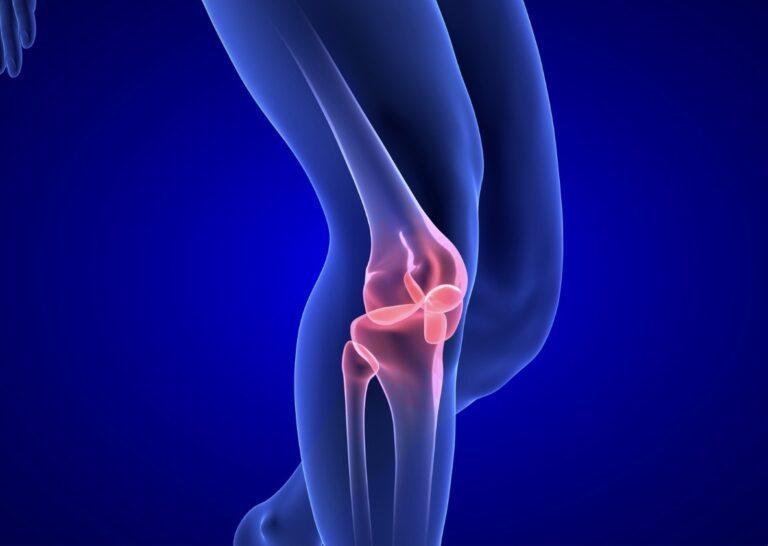Osteoporosis is a debilitating condition that weakens bones and increases the risk of fractures and broken bones. However, the recent approval of Theramex’s abaloparatide (Eladynos) by the National Institute for Health and Care Excellence (NICE) can potentially revolutionise how we manage this disease. This innovative anabolic therapy, the second new drug for osteoporosis in 15 years, offers hope for millions of individuals affected by this condition.
Understanding Abaloparatide
Abaloparatide is a form of parathyroid hormone that stimulates bone formation, with a mechanism distinct from many existing osteoporosis treatments. It has a controlled and targeted delivery that helps to increase bone density and reduce the risk of fractures.
Mechanism of action
The unique mode of action of abaloparatide lies in its ability to selectively activate specific receptors on bone-forming cells, known as osteoblasts. This targeted mechanism promotes the growth and development of new bone, ultimately strengthening the skeletal structure and reducing the likelihood of fractures.
Clinical efficacy
Clinical trials have demonstrated the significant efficacy of abaloparatide in treating postmenopausal women with osteoporosis. These studies have consistently shown that the daily administration of abaloparatide can significantly reduce the risk of vertebral, non-vertebral, and major osteoporotic fractures compared to placebo or other standard treatments.
Addressing the osteoporosis epidemic
The drug has been recommended for patients at high risk of bone fractures. The approval of abaloparatide by NICE comes at a critical point, as osteoporosis continues to be a pressing public health concern in the United Kingdom. The condition affects an estimated 3.5 million people in the UK, with fractures caused by osteoporosis being the fourth-worst cause of disability and premature death.
The diagnostic dilemma
Despite the availability of effective treatments, a significant challenge lies in the lack of diagnostic services across the NHS (National Health Service). The All Party Parliamentary Group for Osteoporosis has found that two-thirds of individuals with osteoporosis are missing out on essential treatment, largely due to the absence of Fracture Liaison Services (FLS) in half of NHS Trusts.
The importance of early intervention
Early diagnosis and intervention are crucial in managing osteoporosis and preventing debilitating fractures. The introduction of abaloparatide presents an opportunity to address this gap, but its impact will be limited if individuals cannot access the necessary diagnostic services.
Bridging the diagnostic gap
To fully realise the potential of abaloparatide and other osteoporosis treatments, the Royal Osteoporosis Society (ROS) has been pushing for the expansion of Fracture Liaison Services across the NHS. These specialised services play a vital role in identifying individuals at risk of osteoporosis and connecting them with appropriate treatment options.
The Royal Osteoporosis Society’s call to action
The ROS has been vocal in its call for the Secretary of State for Health and Social Care to prioritise the implementation of universal Fracture Liaison Services by 2030, as promised during the recent election campaign. This initiative would ensure that all individuals with osteoporosis have access to the necessary diagnostic tools and can benefit from the latest advancements in treatment, such as abaloparatide.
The ROS has been working closely with healthcare professionals, policymakers, and patient advocacy groups to raise awareness and drive osteoporosis care across the UK.
Patient focus
At the heart of the ROS’s mission is a deep commitment to prioritising the needs and experiences of individuals living with osteoporosis. The Society recognises that the successful implementation of abaloparatide and other treatments requires a holistic, patient-centric approach.
Empowering patients
The ROS provides a wealth of educational resources, support services, and online communities to empower individuals with osteoporosis. By equipping patients with the knowledge and tools they need to manage their condition, the Society aims to encourage informed decision-making and active participation in their care.
Addressing unmet needs
The ROS also actively listens to the voices of those affected by osteoporosis, ensuring that their unique challenges and unmet needs are at the forefront of the Society’s advocacy efforts. This patient-centred approach helps to shape the development of comprehensive care pathways and the integration of innovative treatments like abaloparatide.
The future of osteoporosis management
The approval of abaloparatide by NICE represents a significant milestone in osteoporosis management. This new drug, alongside ROS’s ongoing efforts to address the diagnostic gap, holds the promise of a brighter future for individuals living with this condition.
Expanding treatment options
The introduction of abaloparatide expands the range of treatment options available to healthcare professionals. The usual drug treatment options have been romosozumab or teriparatide, followed by bisphosphonates such as alendronic acid. This addition of another therapeutic choice can help to improve patient outcomes and enhance the overall quality of life for those affected by osteoporosis.
Encouraging collaboration
Ultimately, the success of abaloparatide and other osteoporosis treatments will depend on the efforts of healthcare providers, policymakers, patient advocates, and the wider community. By working together to address the diagnostic and access challenges, the UK can ensure that individuals with osteoporosis have the opportunity to benefit from the latest advancements in care and improve their overall quality of life.
Conclusion
The approval of abaloparatide by NICE represents a significant step forward in the fight against osteoporosis. This innovative anabolic therapy, combined with the ROS’s tireless advocacy for comprehensive diagnostic services, holds the potential to transform the lives of millions of individuals affected by this debilitating condition.
Sources
- Overview Abaloparatide for treating osteoporosis after menopause – Guidance – NICE
- Today’s new osteoporosis drug could change lives, but not while diagnostic services are missing in half of NHS Trusts
- NICE recommends new treatment option for osteoporosis after menopause – The BMJ
- Abaloparatide (Tymlos)
Medical Disclaimer
NowPatient has taken all reasonable steps to ensure that all material is factually accurate, complete, and current. However, the knowledge and experience of a qualified healthcare professional should always be sought after instead of using the information on this page. Before taking any drug, you should always speak to your doctor or another qualified healthcare provider.
The information provided here about medications is subject to change and is not meant to include all uses, precautions, warnings, directions, drug interactions, allergic reactions, or negative effects. The absence of warnings or other information for a particular medication does not imply that the medication or medication combination is appropriate for all patients or for all possible purposes.







